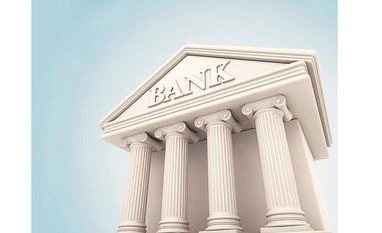Faced with the prospects of attracting huge fines by the regulator, banks have started cancelling the service of e-mandates for auto-debit of funds from cards.
Leading private banks have started sending messages to their customers that they will have to transact on their own for services they want to avail, instead of banks deducting the fee automatically on their behalf.
For example, Axis Bank has sent a communication to its customers that said in accordance with regulatory requirements, “processing of e-mandates for recurring transactions,” registered on credit or debit card, “without Additional Factor of Authentication (AFA), will be discontinued w.e.f. April 1, 2021.” It advised customers to pay at the merchant website or application themselves.
Similar communications were sent by HDFC Bank and others, as well. While Axis and HDFC Bank were the early notifiers, most, if not all, banks are expected to follow suit by Wednesday, 31 March.
"The banks don't have the bandwidth to follow these instructions," said a senior banker.
Axis Bank has also come with a frequently asked question (FAQ) on the issue that said: “All standing instructions set up on your credit and debit card (both domestic and international) will be declined w.e.f April 1, 2021, till next notification from the bank regarding the same.”
Customers can continue to pay for these transactions as per the billing frequency through their card account at the merchant website or application.
“SI using cards given on Netflix, Amazon, Vodafone bill pay, and insurance payments will get deactivated. However, SI registered using bank accounts for house rent, mutual funds and SIPs will continue,” the FAQ read.
The move comes after it was made clear by the Reserve Bank of India (RBI) that it was not going to budge from its stand on the new norms kicking in from April 1, 2021. According to the notification, issued first in August 2019, recurring payments through debit and credit cards will require banks to check with customers by notifying them and getting their approval before processing such transactions.
The RBI believes that it has given enough time to banks to comply with the norms. So, in case, they fail to comply with the norms, they will be penalised. According to RBI rules, per instance of violation of norms attracts a fine of Rs 5 lakh.
In December 2020, when the RBI increased the limit of e-mandate on recurring transactions from Rs 2,000 to Rs 5,000, it had said, processing of recurring transactions (domestic or cross-border) using cards/PPIs /UPI under arrangements/practices not compliant with these instructions shall not continue beyond March 31, 2021.
According to a person familiar with the RBI’s thinking, “Banks do not have to bring in new technology for this (for adhering to the new norms). This is just a question of intent. If banks are unwilling to act on their part, they will have to face heavy fines by the RBI.”
The RBI, the person said, was more concerned about the safety of the customer’s funds than convenience. Such auto-debits have resulted in many complaints in the past, the person added.
The guidelines will impact OTT platforms, e-commerce platforms, and especially merchants who rely heavily on recurring subscriptions and payments as their primary revenue stream.
An Amazon India spokesperson said: “Starting April 1, banks and networks are migrating to the e-mandate framework issued by the RBI. This may lead to the failure of automated payments set up on our customer's credit/debit cards and, in turn, impact auto-renewal of the prime subscription. We continue to work closely with our banking partners to resume the convenience of auto-renewals for uninterrupted access to Amazon Prime”
On the other hand, a banking source said: “From a preparation point of view, some banks are ready. But banks being ready is one part of it; payment aggregators, or other players, such as Netflix or Amazon Prime, should also have to be ready. According to the new RBI regulation, there will be a pre-debit notification through which banks have to intimate 24 hours in advance to their customers saying there is an auto-debit that is to be done.”
According to Pankaj Dedhia, chief business officer, Infibeam Avenues, “Most players in the ecosystem are not ready. Every stakeholder has agreed to the new norms but the amount of work that is required to be done by banks and aggregators in the backend for system readiness is not there. There will be a huge disruption because there are a lot of utility bill payments and insurance premia mapped to standing instructions.”
In a letter, the Internet and Mobile Association of India (IAMAI) had requested the NITI Aayog to provide non-banking entities, such as payment aggregators and merchants another 3-6 months to comply with the norms. "We would like to reiterate that merchants and non-banking entities are completely reliant on the issuer banks for the upgrade to the new infrastructure to further align with the compliance requirements at their individual ends. We believe that non-extension of the timeline will cause an abrupt disruption to the businesses within the ecosystem.”
Unlock 30+ premium stories daily hand-picked by our editors, across devices on browser and app.
Pick your 5 favourite companies, get a daily email with all news updates on them.
Full access to our intuitive epaper - clip, save, share articles from any device; newspaper archives from 2006.
Preferential invites to Business Standard events.
Curated newsletters on markets, personal finance, policy & politics, start-ups, technology, and more.
)